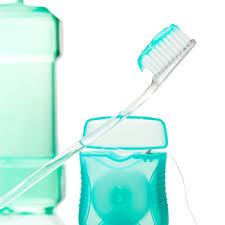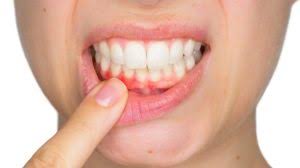You may wonder how oral hygiene, oral health, and your overall health are connected? The short answer is they are related in many ways. From your heart and immune system to conditions like diabetes, the links can be significant. Research continues in many areas to establish even more precise connections.  But enough is already known for medical and dental professionals everywhere to recommend close attention to oral hygiene and oral health. Holistic dentists like Farber Center for Periodontics & Dental Implants place an especially strong emphasis on patient education about optimal oral hygiene practices.
But enough is already known for medical and dental professionals everywhere to recommend close attention to oral hygiene and oral health. Holistic dentists like Farber Center for Periodontics & Dental Implants place an especially strong emphasis on patient education about optimal oral hygiene practices.
Frequent check-ups at a dentist or periodontist are essential, as are routine professional cleanings. But your every day oral hygiene routine at home is of prime importance, along with reducing sugary foods in your diet. All dental professionals agree you need to brush thoroughly at least twice a day and floss at least once a day. Not too long ago, a story turned up in the media questioning the value of flossing, and it received a swift and robust rebuttal from the dental community. Flossing is essential to clean in between your teeth and around your teeth and gums. You need to clean away plaque and trapped food particles that can’t always be reached with a toothbrush alone.
Oral Hygiene Helps Teeth, Gums, and All of Your Body
Healthy teeth and gums work together. If you have gingivitis or periodontitis (gum disease) that is left untreated, your teeth will be affected. Long-term gum infection often results in tooth loss and deterioration of the underlying bone that supports teeth or dental implants. However, it doesn’t end there. Your mouth is connected to the rest of your body by the circulatory and immune systems, as well as the obvious connection to the digestive system.  Therefore a low-grade bacterial infection in your mouth affects other parts of the body instantly. Even your appearance can be on the line if teeth are lost and are not replaced with implants. Tooth sockets left empty after extraction can lead to a natural process known as bone resorption (bone loss) that can affect your facial appearance.
Therefore a low-grade bacterial infection in your mouth affects other parts of the body instantly. Even your appearance can be on the line if teeth are lost and are not replaced with implants. Tooth sockets left empty after extraction can lead to a natural process known as bone resorption (bone loss) that can affect your facial appearance.
Maintaining good whole-body health also includes eating a nutritious and fiber-rich diet. It, of course, means having plenty of fruits and vegetables. Because they often are firm or crunchy, you need a strong bite to eat and enjoy them comfortably. Strong teeth and healthy gums are not only supported by eating a healthy diet, but also, in turn, allow you to eat and enjoy those foods. Beyond what you eat, brushing and flossing regularly can help to avoid bad breath, which also can increase your confidence when around people. Average lifespans for both women and men in the United States are increasing, and as people live longer, they need their teeth to last longer. Among the many reasons for practicing good oral hygiene, helping your teeth last a lifetime is one of the more important.
Poor Oral Hygiene Can Worsen or Help Cause Illness
One of the groups who benefit most from healthy teeth and gums are diabetics. Unfortunately, diabetes automatically puts you at a higher risk for gum disease. Therefore, regular check-ups at a periodontist and professional dental cleanings are even more necessary. Chronic gum disease (periodontitis) may make diabetes more difficult to control. Low-grade infections in the mouth may be among those causing insulin resistance, which disrupts blood sugar control.  For patients with chronic gum disease, special periodontal cleanings that go below the gumline or periodontal pocket cleanings using dental lasers can be beneficial.
For patients with chronic gum disease, special periodontal cleanings that go below the gumline or periodontal pocket cleanings using dental lasers can be beneficial.
Bacterial oral inflammation (gingivitis) also may contribute to clogged arteries and blood clots. Some research studies indicate that bacteria in the mouth can cause mild inflammation throughout the body, including the arteries. Therefore, it may be a basis for an accumulation of plaque in the arteries, possibly laying a role in a heart attack or stroke. The more serious the oral infection, the higher the risk appears to be. Also, oral infections, gum disease, and tooth loss may contribute to plaque in the carotid artery. In one study, 46 percent of participants who’d lost up to nine teeth had carotid artery plaque; among those who’d lost ten or more teeth, 60 percent of them had such plaque.
To be healthy, keep your teeth and look great, oral hygiene is a serious matter. As children, nearly all of us grew up with reminders from our parents, teachers, and dentists about the need to brush and floss. Hopefully, by now, you follow an excellent oral hygiene routine. If you don’t and are already having tooth decay or gum disease, it’s never too late to start. Our Farber Center locations in Medford NY and Hauppauge, NY, are among the most trusted holistic dentists Long Island has available. Out periodontal treatments and dental implant centers can help no matter what you need. We are dedicated to preserving or saving teeth — and when it is not possible, replacing them with the most effective and advanced dental implants in Long Island.
Comments are closed.
